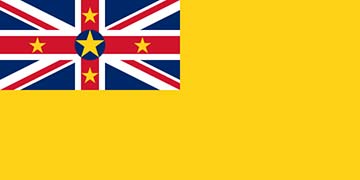How to self-isolate
You must self-isolate for a minimum of 7 days if you:
· test positive for COVID-19
You are also encouraged to self-isolate if you:
- Have symptoms of COVID-19
- Are a household contact of a case
What isolation means for you
Isolation means:
- staying home or in alternative accommodation
- not going to any public places — for example, shops, schools or other homes
- not having any visitors in your home
- taking simple, common-sense steps to avoid close contact with other people as much as possible, as you would with the cold or flu.
People who are not cases themselves can continue to attend school or go to work, even if someone else in the house is isolating.
What to do when self-isolating
Avoid close contact with people in your household. This means avoiding situations where you have face-to-face contact with them closer than 2 metres for more than 15 minutes.
- If you cannot physically distance, wear a mask.
- Try to sleep by yourself, if you can.
- Limit the time you spend in shared spaces. Use a separate toilet or bathroom, if you have one, or let others use it before you so it can be cleaned and ready for everyone else to use again.
- Open windows to increase fresh airflow inside.
- Clean and disinfect surfaces regularly. This includes things you touch often, like door handles, light switches and phones.
- Wash your own dishes, cutlery and towels in hot soapy water.
- Do your own laundry.
- Wash your hands with soap and water for 20 seconds, or use hand sanitiser.
- Eat in a different room from other people.
Exercising when isolating
Getting out for some fresh air and going for a short walk can
help improve your mental wellbeing while you are in isolation.
If you are going out for
some gentle exercise, wear a mask, stay near your house, and make sure you
avoid contact with other people. Try to go for a walk when it is not busy. Do
not go too far from your house. If you do come into contact with other people,
you must return home immediately.
What not to do when self-isolating
- Do not go to early childhood centres like village play centres and the Aoga Tolotolopulu, Niue Primary School and Niue High School, and other high-risk settings — aged care, the church, and Niue Foou Hospital.
- Do not prepare food for others or share food or drinks.
- Do not share items with other people in your household — for example, cups, glasses, plates, cutlery and towels.
- Do not use the same phone, TV or stereo remote control, or radio, tablets, laptops or other items as others in the household.
It can be tough self-isolating but there are things you can do to make it easier:
- Keep in touch with family and friends online or by phone.
- Ask friends or family to bring anything you need to leave outside your door, like food, books, clothes.
- Talk to your employer to see if you can work from home.
- Look after your physical and mental wellbeing by doing some gentle exercise around your home, for example mowing the lawns.
- If your children are isolating, talk to them and explain why it is important to stay home to keep everyone safe.
The Public Health team or other health or government staff will call or message you daily during your self-isolation period. The team may conduct health checks and talk to you about your general wellbeing.
If you are living alone, the team may call you by phone more often than those who are living at home with family. They can help you with:
- food and essential items
- support for personal care or daily tasks
- help with getting a power token
If you need to see a doctor while you are isolating, please call Niue Foou Hospital on 4100. DO NOT go to the hospital.
Self-isolation cannot be carried out properly unless you cooperate fully. The general public are aware you are in self-isolation and will therefore be on alert for any breach of these self-isolation rules. Any activities or sightings of you that breach these rules will be reported to the Police.
The strictness of these rules is to ensure COVID-19 is not carelessly shared with others and we strongly encourage you to adhere to them, for the sake of everyone in Niue.
